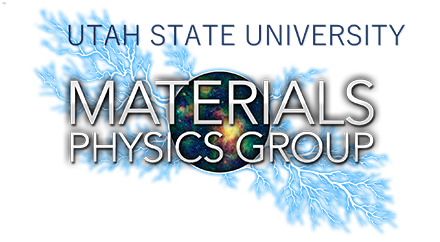Document Type
Presentation
Journal/Book Title/Conference
USU Student Research Symposium
Publication Date
4-8-2015
Abstract
The penetration range of an electron into diverse materials can be estimated using an approximation fit as a function of a single parameter, N y, which describes the effective number of valence electrons. This fit is found using the Continuous-Slow Down-Approximation (CSDA), which simplifies the process of estimating an expected penetration range of a given material by applying some of the material’s key characteristics. Using the CSDA, a simple composite analytical formula is created which estimates the range or maximum penetration depth of incident electrons. This formula generates an approximation to the range using the parameter, Nv . The range of well-fit electrons encompasses energies from <10 eV to >10MeV with an accuracy of 20%. A list comprised of 247 materials has been compiled that greatly extends the applicability of this model. Several significant material constants were compiled for each material, including the atomic number, atomic weight, atomic density, and band gap. These materials were further separated into various subcategories including conductors, semiconductors, and insulators, and the material’s phase at room temperature. To determine Nv , the model was then fit to existing data for these materials collected from the ESTAR and IMFP databases compiled by NIST. Comparison of Nv with the material’s constants from this large database of materials will made. The resulting formula could possibly lead to the prediction of Nv for materials which have no supporting data. These calculations are of great value for studies of high electron bombardment, such as electron spectroscopy or spacecraft charging. This research may also be applied in the medical field, for instance, improving physical selectivity in radiation therapy.
Recommended Citation
Anne Starley, Lisa Montierth Phillipps and JR Dennison, “Electron Penetration Range for Every Body,” USU Student Research Symposium, Logan, UT, April 8, 2015.


